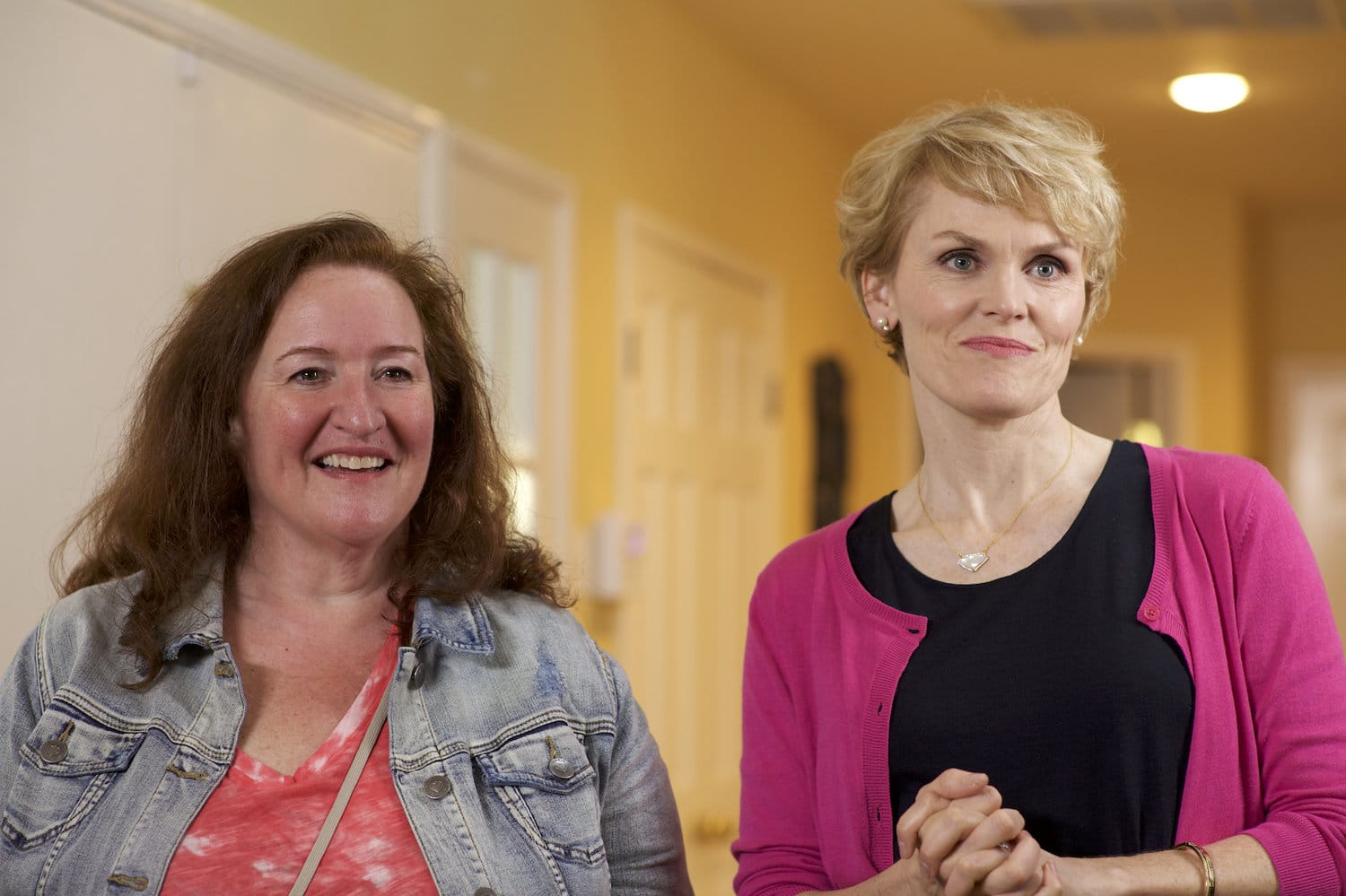A non-traditional romantic comedy that deals with the realities of looking for romance.
There are so few romcoms these days, and what few there are so often get lost in the mix of big-budget and high spectacle movies. Independent filmmaker, Francis Stokes newest film Wild Honey makes the attempt to breathe life back into the genre and works as a nice reminder of why we need more romantic comedies around.
When middle-aged Gabby (Rusty Schwimmer) finds herself out of money and back at her mother’s home, she works as a sex-phone operator in order to make a living for herself. After having a delightful, non-sex related conversation with a client one afternoon, she decides to pack up her bags and head to LA to find him. What awaits her there is probably much more than she ever thought she needed.
This film has all of the ingredients for a delightful romantic comedy and uses them in a fun way. How it differs from a traditional romcom is very interesting and important in getting the story to feel real. More often than not, the lead of a romantic comedy is usually a near perfect, young woman or man who is desirable to many, just not the one they want most. With Gabby, from the very opening of the movie, we see her imperfections as a character, and therefore, view her as a normal, relatable human being. The choice to tell the story from the perspective of an older, more flawed individual, and center it around how she deals with romantic loneliness brings something different to the table. And on top of this, the film passes the Bechdel test. During a Q&A at the Austin Film Festival, Schwimmer cites this as one of the reasons she wanted to participate in the film, and this aspect of it is evident in the fact that it spends a good amount of time on Gabby’s discovery within herself and her relationship with her family, rather than just making it about her romantic attraction to a client.
So much of creating a film concerns making characters feel realistic and appear as fully fleshed out people rather than imaginary figures on a page. And the attention paid to character details in this movie really shows. In one scene, where Gabby is back at her mother’s house, watching her clean, she sits on the couch, eating dry cereal. Something as simple as this can say so much while saying nothing at the same time.
She wasn’t snacking on chips or popcorn, but dry cereal, which gives insight as to who she is and the point she is at in her life. What compels her to eat dry cereal? Maybe she has no milk, or maybe she likes it that way. It’s not exactly clear, but what is clear is that eating dry is an interesting character choice.
And while the film makes note of some very serious subjects at times, such as being broke, having family problems, and working in the phone sex industry, it does not lack for comedic relief or lighthearted content. By the time the film reaches its climax, the filmmakers have already established a sort of trust and bond with the audience to where it becomes clear they’re not here to make all sorts of twists and turns that take the story down a more depressing route. Rather, these heavy topics are consistently framed within the context of a comedy, and that tone is fluid through the entire film.
This story is no fairytale, but it never tries to be. There are moments where all of the subtle satire is very clear, and in those scenes, hilarity is front and center. But more than just jokes, there is something to be said about the importance of making a character relatable and relevant, and how far that goes in telling a story. Gabby may be no role model, but she is definitely someone who seems like she could easily be a friend, or an acquaintance, or a relative. She feels real, and the film addresses the imperfect realities of looking for romance and rediscovering yourself.

